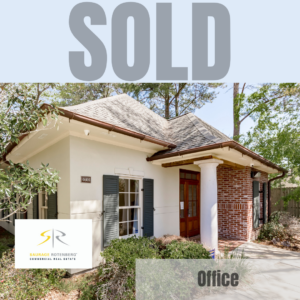Trump Treasury Nominee Revives Talk of Privatizing Fannie Mae, Freddie Mac
Article submitted by Bob Kirby, Associate Broker for Saurage Rotenberg Commercial Real Estate
Written by Mark Heschmeyer for CoStar | November 30, 2016
Call it an early Christmas present for Fannie Mae and Freddie Mac shareholders. President-elect Donald Trump’s nominee to head the Treasury Department, Steven Mnuchin, in his first interview since his announced appointment said the two housing finance agencies should not be under government control and added that the Trump administration would make it a priority and get it done reasonably quickly.
Fannie Mae shares jumped $1.25 per share to $4.33 and Freddie Mac’s share price soared $1.24 to $4.26 per share.
Fannie Mae and Freddie Mac provided about $90 billion in multifamily financing combined last year, and are on that pace again this year.
Speaking on Fox News, Mnuchin said, “We’ve got to get Fannie and Freddie out of government ownership. It makes no sense that these are owned by the government and have been controlled by the government for as long as they have. In many cases they displace private lending in the mortgage markets,” said Mnuchin.
“It’s right up there in the top 10 list of things we’re going to get done,” he added. “Let me make clear we will make sure when they are restructured they are absolutley safe and don’t get taken over again. But we have to get them out of government control.”
Plans for how such a separation will happen have not been formulated, but the news that the mortgage finance giants would be returned to private shareholders sent their stocks soaring.
Shareholders also appeared to be heartened that Mnuchin’s comments on Fox News appeared to favor returning Fannie and Freddie back to private ownership rather than being wound down and eliminated entirely, as some Republican congressional leaders have proposed.
Rep. Jeb Hensarling, for example, the Texas Republican who chairs the House Financial Services Committee, earlier this month restated support for his housing finance reform plan, under which Fannie Mae and Freddie Mac would be phased out over five years.
The U.S. government took Fannie Mae and Freddie Mac over during the global financial crisis, providing capital support through U.S. Treasury preferred stock purchases of their mortgage-back securities, but did not acquire the balance of privately held shares of the companies. Under their current bailout agreements, Fannie and Freddie are required to send nearly all of their profits to the U.S. Treasury, while winding down their capital to zero dollars by 2018.
Some groups have opposed that plan, saying Fannie and Freddie should be allowed to keep more of their profits in order to build a capital buffer in order to help maintain their viability in providing credit to potential homebuyers.
Congress has debated what to do with the two GSEs almost since agreeing to bail them out. As goverment-sponsored enterprises, the two agencies play a critically important role in real estate finance by establishing a vibrant secondary market, buying mortgages from lenders, packaging them into securities and providing guarantees to investors in case of default.
The question over what to do with Freddie and Fannie has been tied up in Congress as part of a larger debate over housing policy reforms following the Great Recession. Despite repeated calls over the past eight years for Congress to pass legislation to reform the housing-finance system, legislators have failed to agree on a comprehensive proposal.
Congress is currently considering several smaller pieces of legislation that would address the GSE status enjoyed by Fannie Mae and Freddie Mac, possibly including winding them down entirely, addressing portfolio limits and guarantee fees, among other issues.
More clarity on the fate of Fannie and Freddie could be forthcoming during Mnuchin’s expected congressional confirmation hearings.
While the GSEs’ future is up in the air, they are sensing a peak in the multifamily finance market.
Bob Kirby, a commercial leasing and sales consultant with Saurage Rotenberg Commercial Real Estate, has over 37 years of sales and management experience. Licensed in Louisiana and Mississippi, Bob is a member of the Mississippi Commercial Association of REALTORS® (MCAR); the Greater Baton Rouge Association of REALTORS® Commercial Investment Division (CID); a candidate member of the Certified Commercial Investment Member Institute (CCIM); and an affiliate member of the National Association of REALTORS® (NAR) and NAR Commercial.
Saurage Rotenberg Commercial Real Estate is a member of the Baton Rouge Area Chamber of Commerce (BRAC); the West Baton Rouge Chamber of Commerce; the Baton Rouge Better Business Bureau; the Louisiana Commercial Data Base (LACDB); and the International Council of Shopping Centers (ICSC). Several agents, on an individual basis, are members of the Society of Industrial and Office Realtors® (SIOR), the Certified Commercial Investment Member Institute (CCIM); the National Association of REALTORS® (NAR); and the Greater Baton Rouge Association of REALTORS® Commercial Investment Division (CID).




